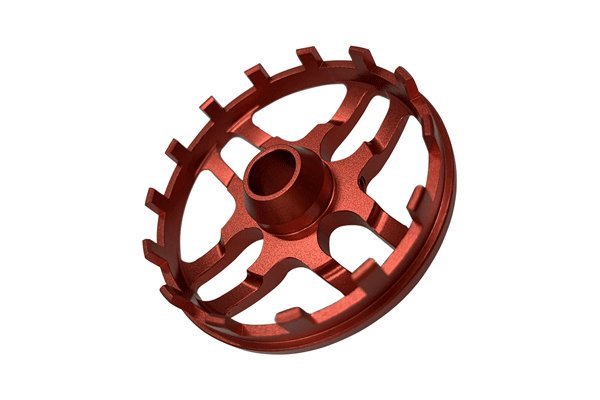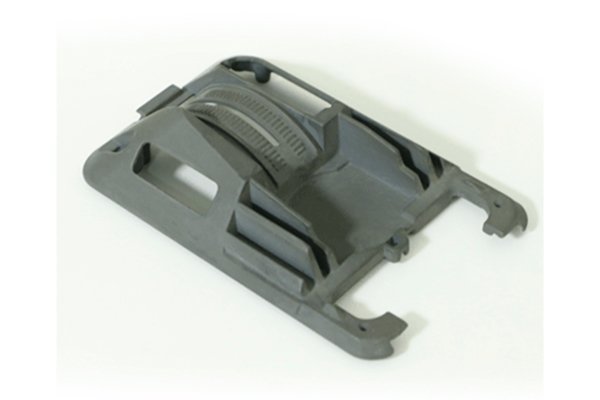Did you know that over 80% of all mechanical devices rely on gears for their functionality? From automobiles to industrial machinery, gears are essential components for transmitting motion and power. This fascinating reliance on gears underlines an important truth about modern engineering: the quality and precision of gears directly impact the efficiency and longevity of machines. As the industry evolves, the demand for custom gears and shafts manufactured with precision and efficiency has grown, leading many manufacturers to turn to CNC machining.
In this comprehensive blog, we will explore the intricacies of CNC machining and how it facilitates the creation of custom gears and shafts. By the end, you’ll understand why CNC machining is crucial for manufacturing custom components and how it can dramatically improve production processes in various industries.
Understanding CNC Machining
What is CNC Machining?
CNC (Computer Numerical Control) machining is a manufacturing process that utilizes computerized controls to operate tools and machinery. CNC machines automate the movement of tools and materials, ensuring high precision and accuracy during manufacturing. This technology allows for the creation of highly complex shapes and designs that are difficult or impossible to achieve through traditional machining techniques.
The CNC Machining Process
The CNC machining process generally consists of the following steps:
Why Choose CNC Machining?
CNC machining offers numerous advantages that position it as a leading choice for manufacturing custom gears and shafts:
Applications of CNC Machining in Gear and Shaft Production
Custom gears and shafts have applications across various industries, each with its unique requirements:
The Process of Manufacturing Custom Gears and Shafts with CNC Machining
Design Considerations
When designing custom gears and shafts, it’s vital to consider:
Prototyping
Prototyping is a critical step in the CNC machining process. By creating a prototype, engineers can:
Manufacturing Steps
Post-Processing

Post-processing techniques may include:
The Benefits of Using CNC Machining for Custom Gears and Shafts
Increased Precision and Optimal Performance
One of the standout benefits of CNC machining is its ability to produce parts with exceptional accuracy. For custom gears, precise tooth geometry and alignment are crucial for optimal performance. Any deviations can lead to inefficiencies, increased wear, or even catastrophic failure.
Enhanced Design Capabilities
CNC machining not only produces routine gears but also accommodates intricate designs. Engineers can create complex tooth profiles with varying depths, diameters, and pitches, allowing for bespoke solutions tailored to specific applications.
Shorter Lead Times
The efficiency of CNC machining significantly reduces lead times. Traditional machining processes often require long setup times and manual adjustments. In contrast, CNC machines undergo minimal setup allowing manufacturers to deliver custom gears and shafts to clients more quickly.
Ability to Handle a Variety of Materials
CNC machining is versatile in terms of material handling. Whether the need is for lightweight aluminum gear assemblies or robust steel shafts, CNC machines can adapt effortlessly to different materials, optimizing characteristics relevant to their intended use.
Reliability and Consistency
CNC machines are renowned for their reliability and consistency. Once trained on a design, they can continuously produce parts without fatigue or errors associated with human labor.
Cost-Effectiveness for Custom Jobs
Custom machining using CNC processes may initially seem costly, but considering the efficiency, reduced wastage, and lowered labor costs, it proves to be a cost-effective solution for producing small batches of complex components.
Challenges and Solutions in CNC Machining for Custom Gears and Shafts
Limitations of Material Compatibility
While CNC machining can handle various materials, some materials require specialized techniques. For example, very hard materials may necessitate diamond tooling, which isn’t always available.
Solution: Material Research
Prior to production, a thorough research phase is essential to identify the ideal tooling required for the selected material—ensuring compatibility that fosters the manufacturing process.
Tool Wear
Tool wear can affect precision, causing deviations in the final product.
Solution: Regular Maintenance and Tool Replacement
Implementing a tool monitoring system can keep track of tool wear, allowing operators to perform maintenance and swap out tools as needed.
Programming Errors
Programming errors can lead to defective parts.
Solution: Simulation Software
Using simulation software allows engineers to visualize and confirm the machining process before it actually begins, minimizing errors and defects.
Case Studies: Successful Applications of CNC Machined Gears and Shafts
Automotive Application: High-Performance Gears
A renowned automotive manufacturer needed a series of high-performance gears for a new racing vehicle. Using CNC machining enabled the team to prototype quickly and produce gears that met strict weight and performance requirements.
Aerospace Application: Critical Components
In aerospace, precision is non-negotiable. A helicopter manufacturer relied on CNC machining to create custom gearbox components. The parts met stringent industry standards and increased the reliability of the helicopter’s power transmission system.
Medical Equipment Prototyping
In the development of cutting-edge medical devices, a manufacturer sought CNC machining for custom gears that power robotic surgeons. The rapid prototyping capabilities allowed them to iterate on designs quickly, bringing their innovative product to market faster.
CNC machining stands as a pillar of modern manufacturing, dramatically enhancing the production process for custom gears and shafts. With its precision, flexibility, and cost efficiency, CNC machining not only fosters innovation but also improves the reliability of products across various industries.
As industries seek to improve efficiency and quality, understanding the benefits and processes associated with CNC machining becomes invaluable. By leveraging advanced manufacturing technologies, businesses can stay competitive and meet the growing demand for custom solutions.
In summary, whether you are in the automotive, aerospace, or medical industry, the implications of adopting CNC machining for your custom gear and shaft production are significant. It is worth considering this technology for your manufacturing processes, not only to boost productivity but to ensure the optimal performance of your machinery. Embracing CNC machining can very well be the key to unlocking greater success in your manufacturing journey.






